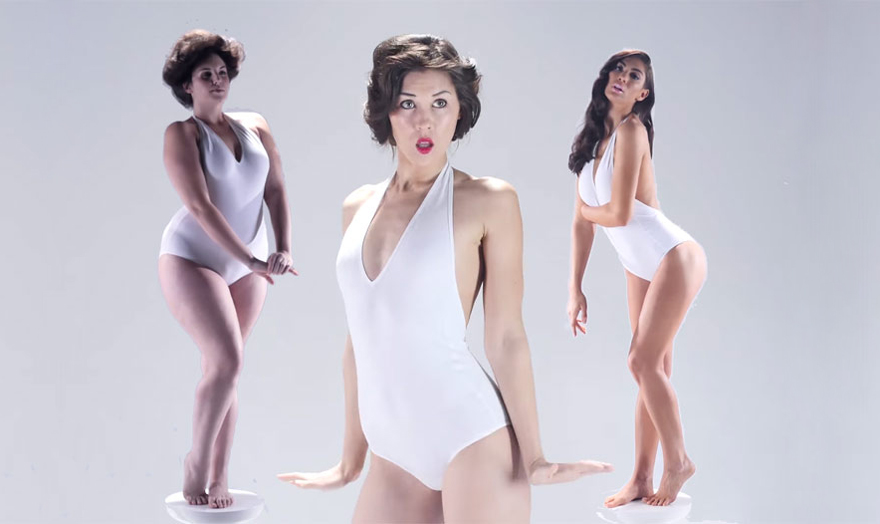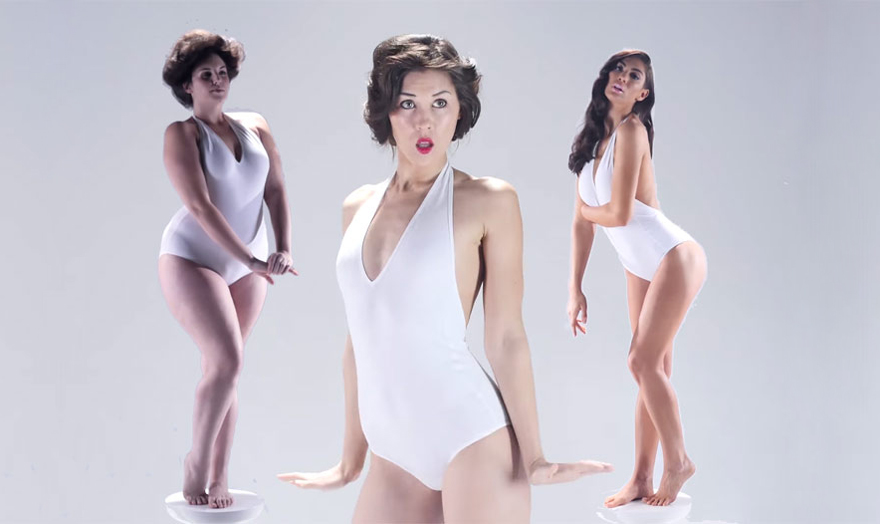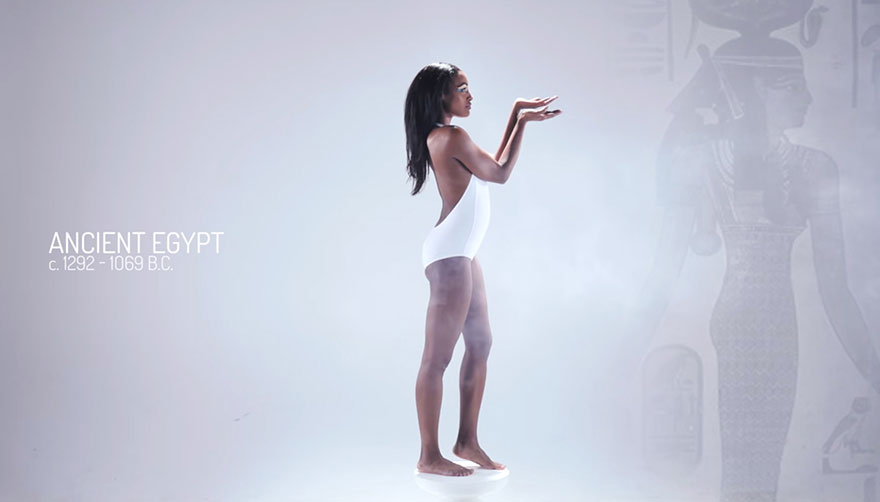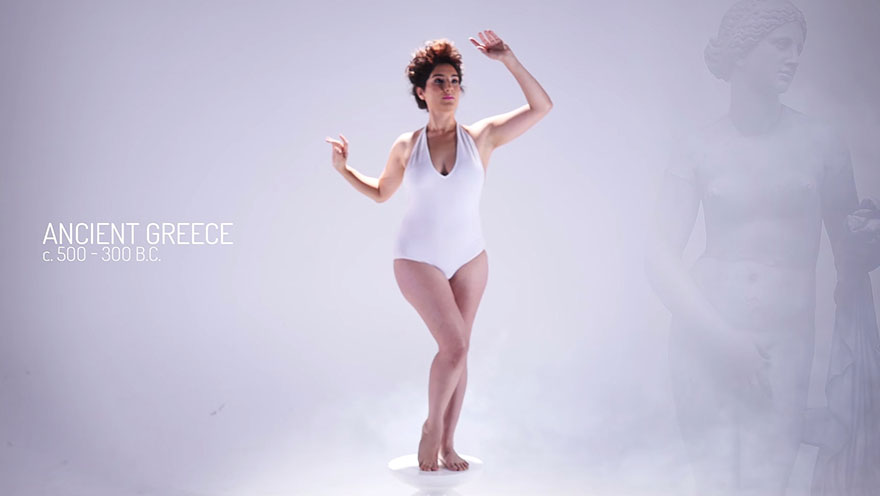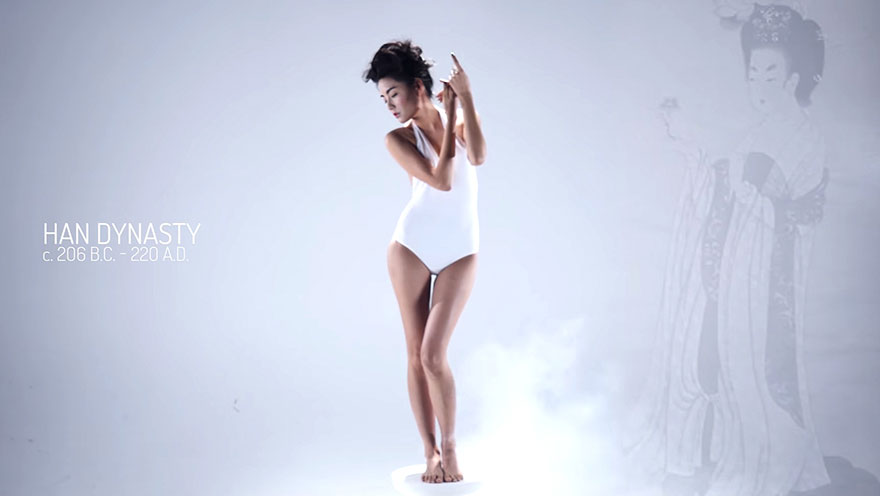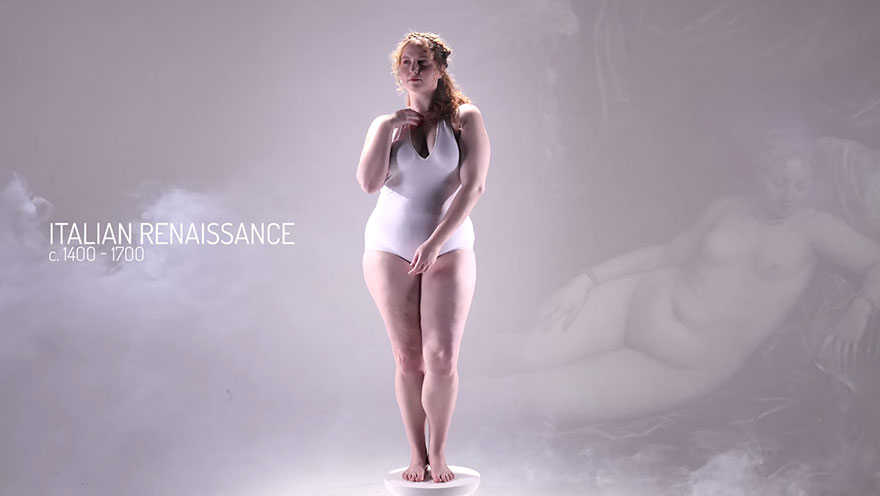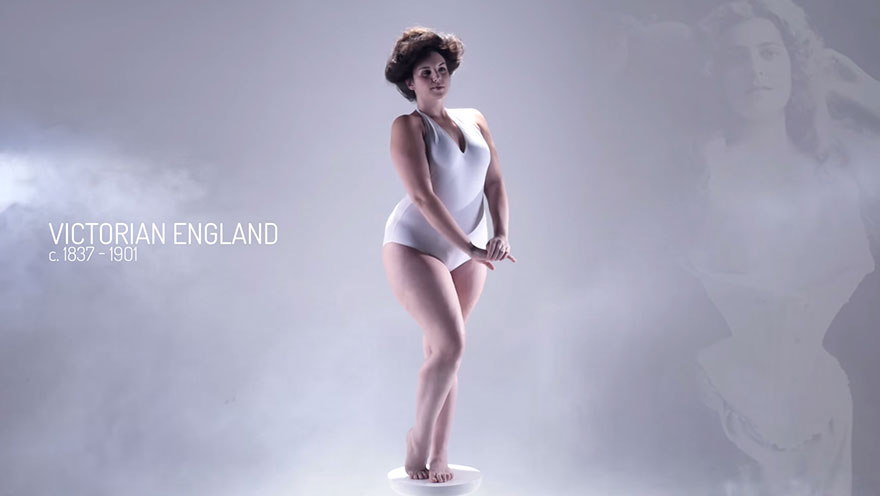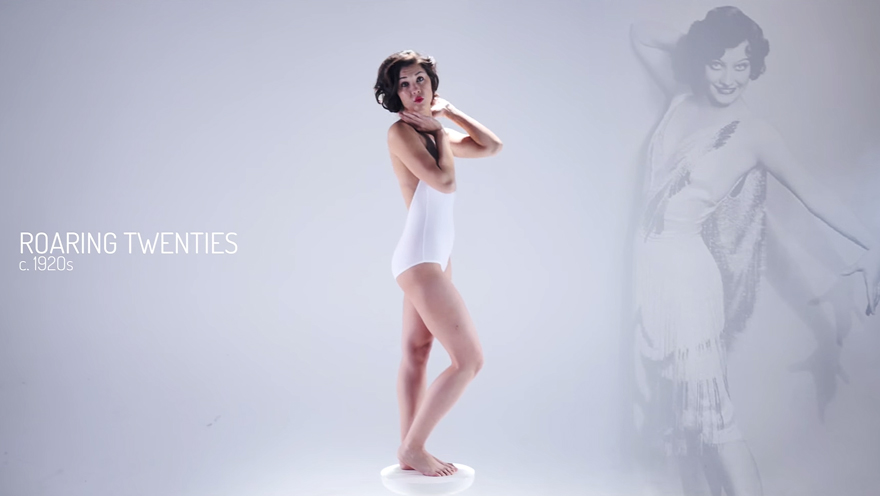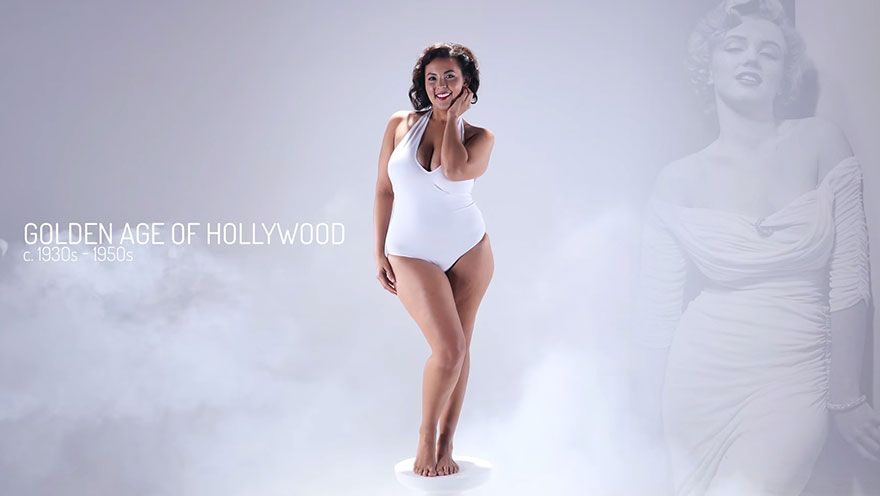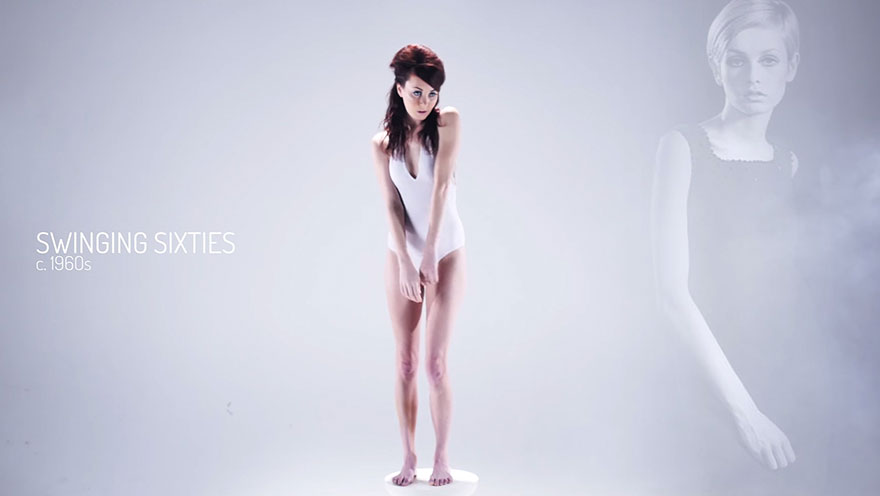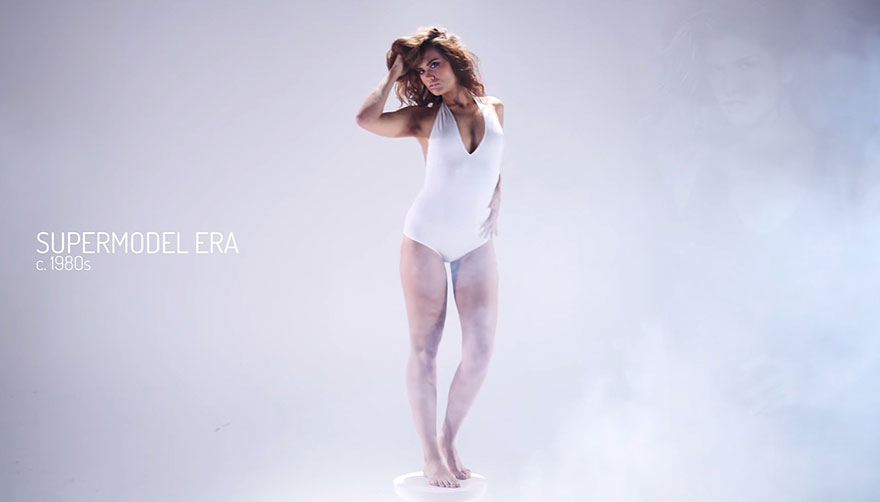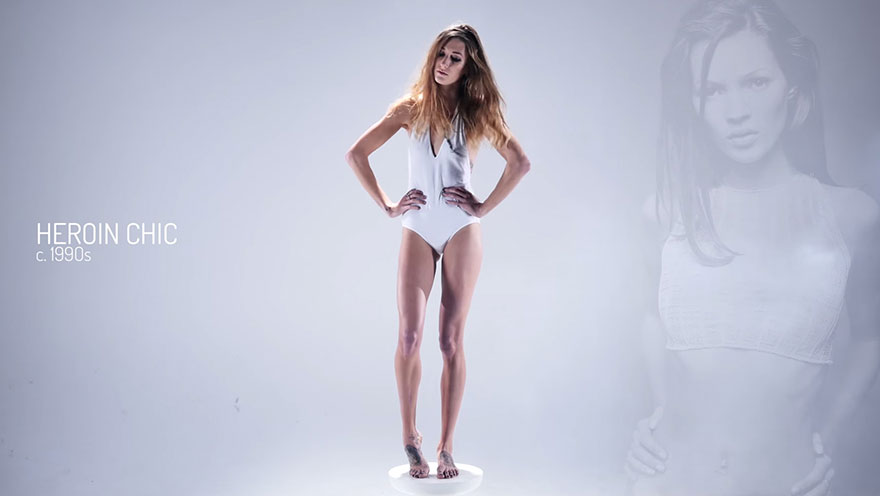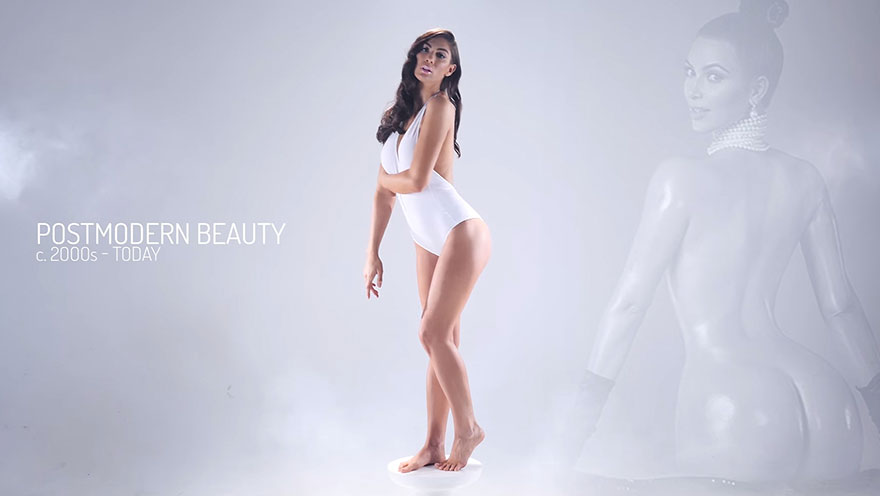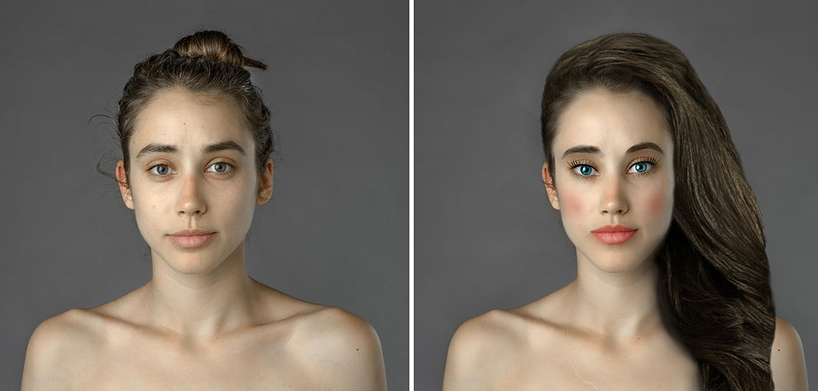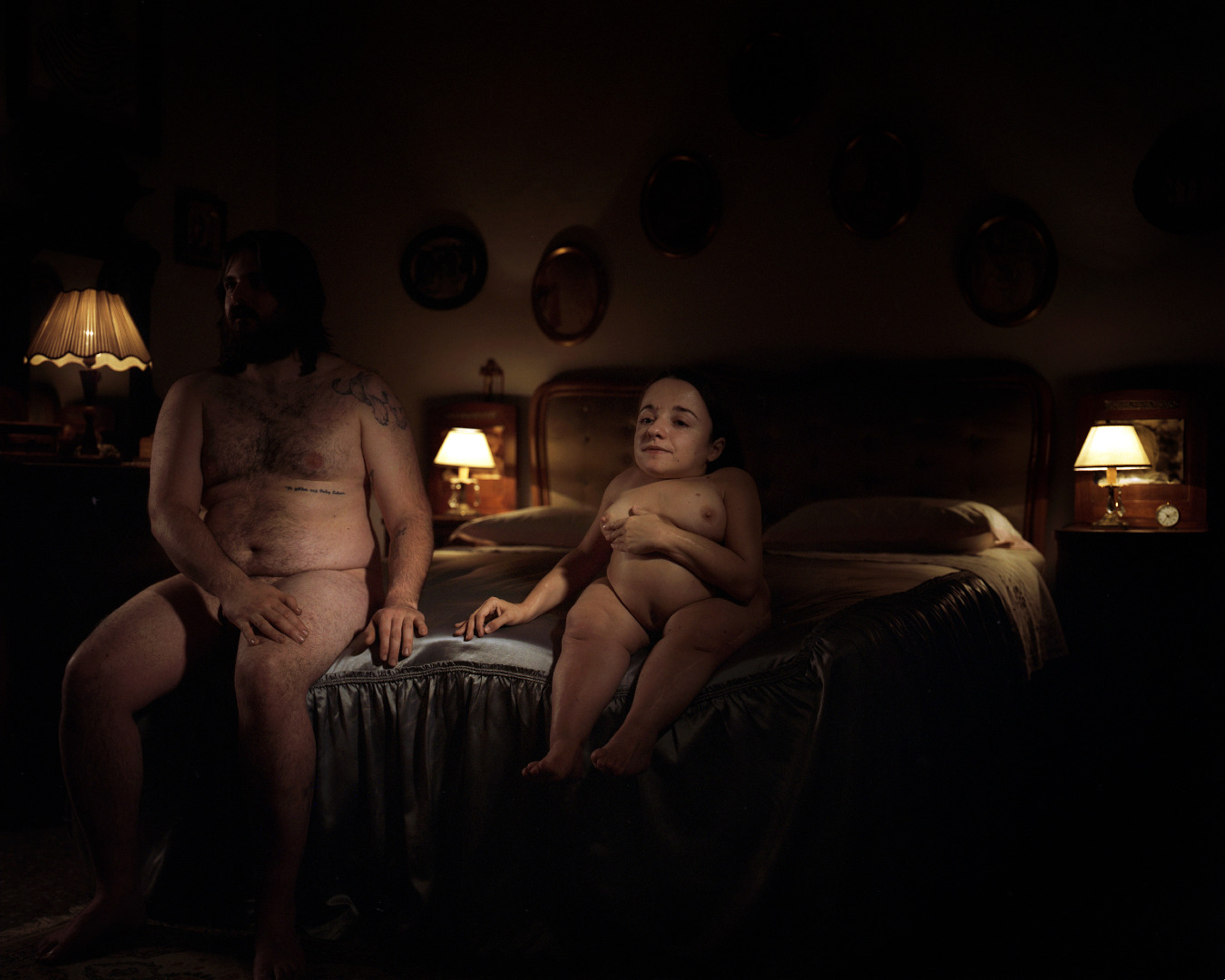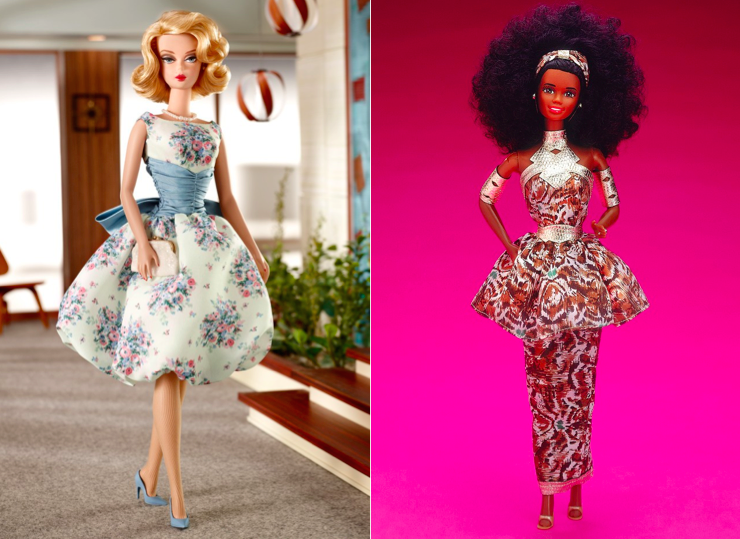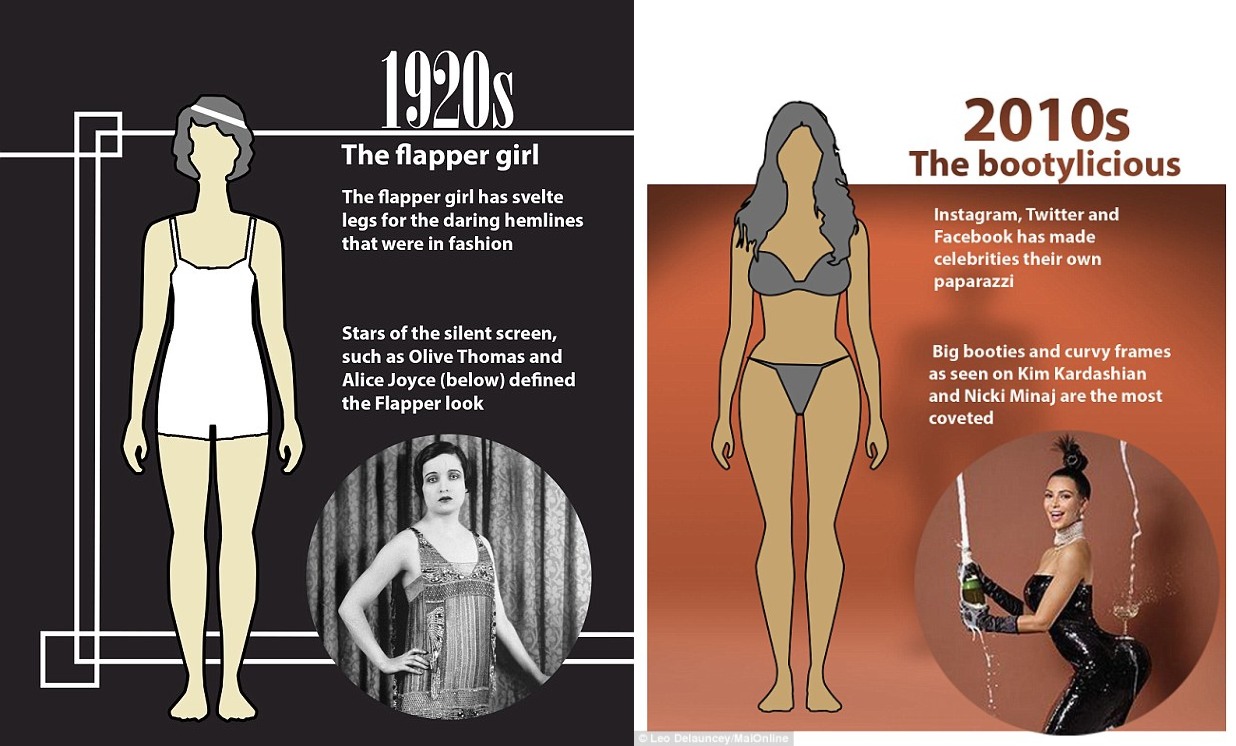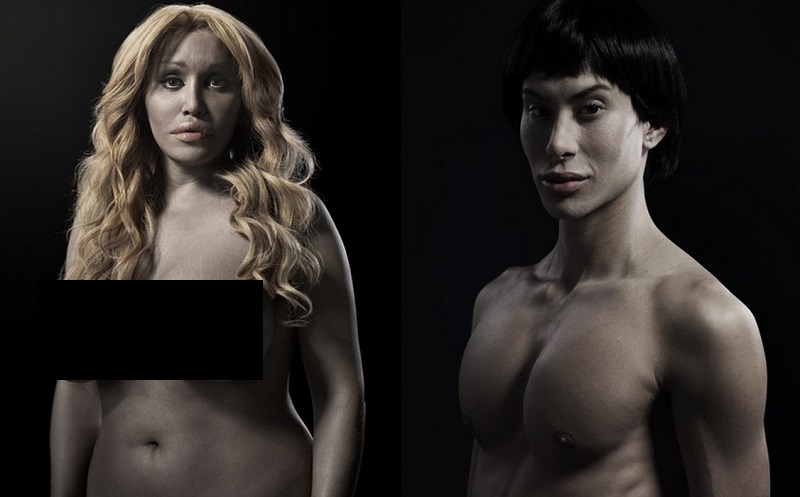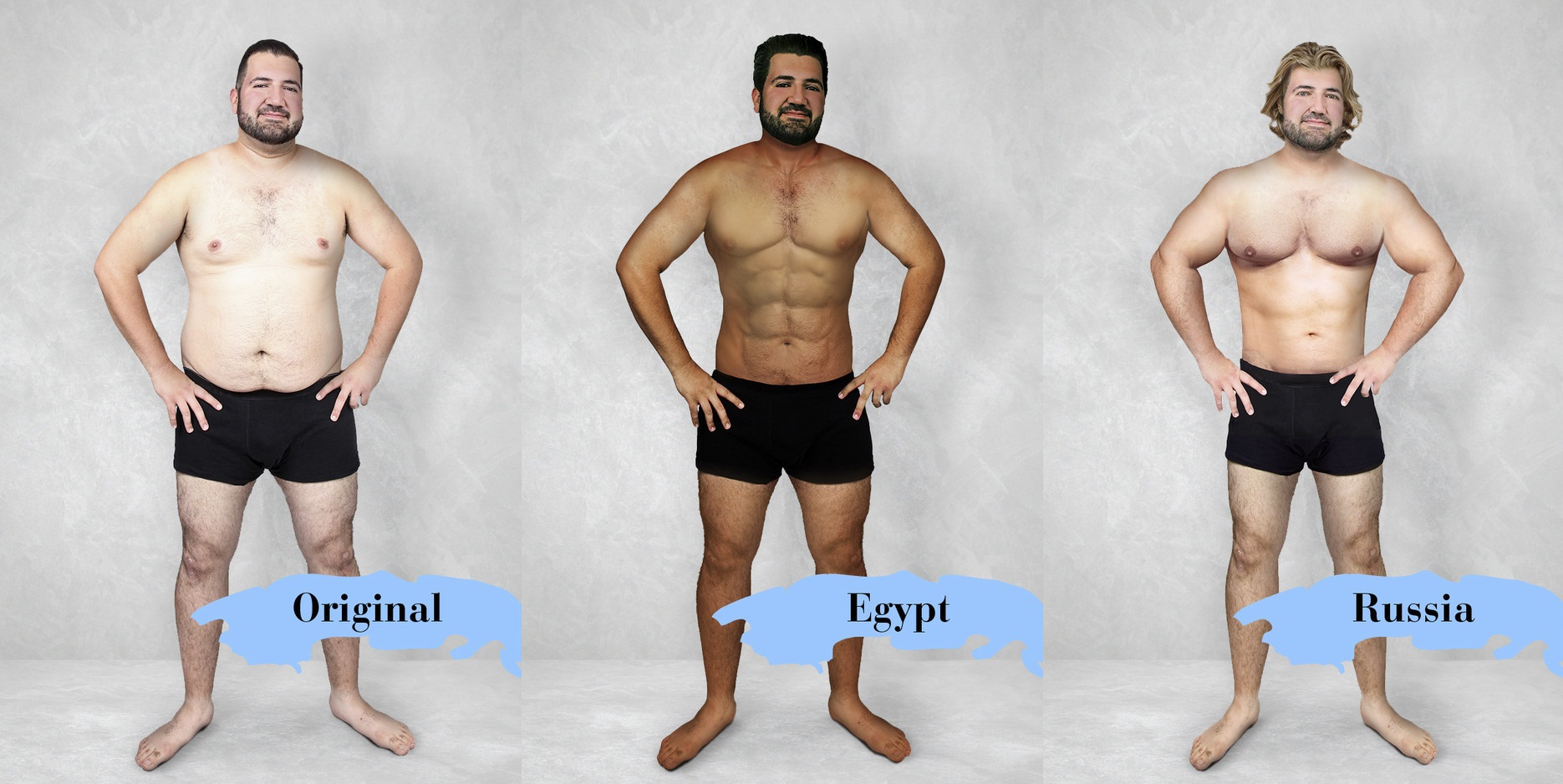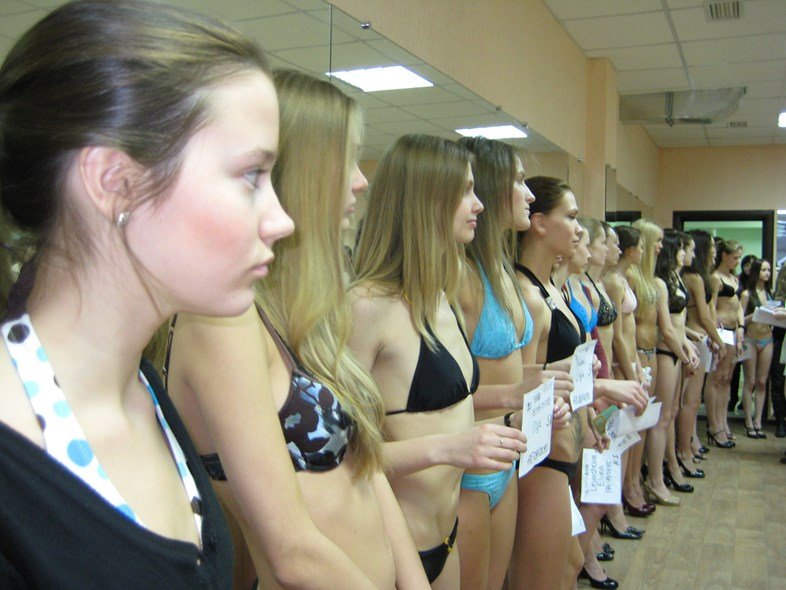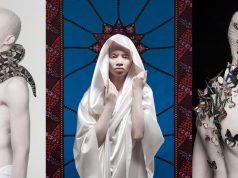Beauty is in the eye of the beholder, but that eye can see things very differently depending on where (and when) it is. Buzzfeed’s video staff explored this idea by creating a video with live models showing us how the concept of an ideal woman’s body type has changed throughout history.
We all probably have some idea of how women from all of the different historical periods in the video dressed, but the idea that there were different ideal body types may not have occurred to many of us. The uniform white bathing suits that all of the models in the video are wearing help accentuate the differences between their bodies, doing away with other potential historical elements that we might have focused on otherwise like clothing or jewelry.
Ancient Egypt (c. 1292-1069 B.C.)
– Slender
– Narrow shoulders
– High waist
– Symmetrical face
Ancient Greece (c. 500-300 B.C.)
– Plump
– Full-bodied
– Light skin
– Women were considered “disfigured” versions of men
Han Dynasty (c. 206 B.C.-220 A.D.)
– Slim waist
– Pale skin
– Large eyes
– Small feet
Italian Renaissance (c. 1400-1700)
– Ample bosom
– Rounded stomach
– Full hips
– Fair skin
Victorian England (c. 1837-1901)
– Desirably plump
– Full-figured
– Cinched waist
– Women wore corsets to achieve the ideal body shape
Roaring Twenties (c. 1920s)
– Flat-chested
– Downplayed waist
– Short bob hairstyle
– Boyish figure
Golden Age Of Hollywood (c. 1930s – 1950s)
– Curvy
– Hourglass figure
– Large breasts
– Slim waist
Swinging Sixties (c. 1960s)
– Willowy
– Thin
– Long, slim legs
– Adolescent physique
Supermodel Era (c. 1980s)
– Athletic
– Svelte, but curvy
– Tall
– Toned arms
Heroin Chic (c. 1990s)
– Waifish
– Extremely thin
– Translucent skin
– Androgynous
Postmodern Beauty (c. 2000s-Today)
– Flat stomach
– “Healthy” skinny
– Large breasts and butt
– Thigh gap
– Women regularly get plastic surgery to achieve their desired look

